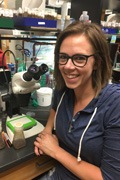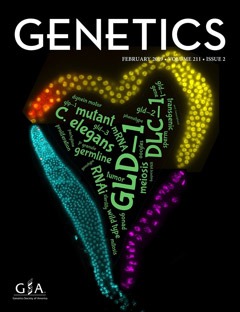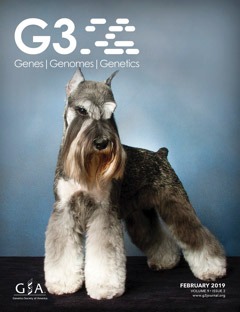Overview
The Edward Novitski Prize, established in 2008, recognizes creativity and intellectual ingenuity in the solution of problems in genetics research. The prize honors scientific experimental work—either a single experimental accomplishment or a body of work—including the experimental design and execution involved in genetic scientific discovery.
The Novitski family and GSA established the prize to honor the memory of Edward Novitski (1918-2006), a Drosophila geneticist and lifelong GSA member who specialized in chromosome mechanics and elucidating meiosis through the construction of modified chromosomes. Novitski was a student of Alfred Sturtevant, himself a student of Thomas Hunt Morgan. He was educated at Purdue University and Caltech and was a faculty member at the University of Missouri, Oak Ridge National Laboratory, and the University of Oregon. He mentored Larry Sandler and Dan Lindsley among other Drosophila geneticists. Novitski led by example, tackling difficult problems using innovative experimental approaches throughout his career.
Nomination Process and Instructions
Full instructions on how to nominate for a GSA Award are available here.
A nomination packet should include:
- Nominee name and contact information
- Nominator name and contact information (if different from the nominee)
- Cover Letter (250 words or fewer)
- NIH-style biosketch (5 pages or fewer)
- Lived-experience statement (250 words or fewer) Nominees should give an overview of their career path and scientific philosophy in 250 words or fewer. They are encouraged to describe their particular approaches to research, mentoring, teaching, and equity, as appropriate, and are welcome to include information about barriers they have faced and/or overcome.
- Selection questionnaire (see below)
- Demographic survey (optional)
Eligibility
To be considered for the Novitski Prize, the nominee(s) must be member(s) of GSA. Up to two individuals of any career stage may jointly receive the prize. If there are more than two individuals who were the key driver(s) of the creativity leading to the novel insights are eligible for the award. The work in question must be published in (a) peer-reviewed publication(s).
Selection Questionnaire
- Was the nominee’s creative effort published in a peer-reviewed journal? If so, please provide the relevant citation(s). If not, please describe the ways in which the work was disseminated. (100 words max)
- Describe the creative aspects and novelty of the scientific contribution in question. (100 words max)
- If nominating two individuals, briefly describe the specific contributions of each. (100 words max)
Award Dates
Nominations are due October 1, 2024.
Past Recipients
| 2024 | Elaine Ostrander, National Human Genome Research Institute, National Institutes of Health |
| 2023 | No award given |
| 2022 | Harmit Malik, Howard Hughes Medical Institute and Fred Hutchinson Cancer Research Center |
| 2021 | Feng Zhang, Howard Hughes Medical Institute and Massachusetts Institute of Technology |
| 2020 | Welcome Bender, Harvard Medical School |
| 2019 | Joseph Heitman, Duke University |
| 2018 | Job Dekker, University of Massachusetts Medical School |
| 2017 | Jonathan Hodgkin, University of Oxford |
| 2016 | Leonid Kruglyak, HHMI and University of California, Los Angeles |
| 2015 | Sue Biggins, Fred Hutchinson Cancer Research Center and University of Washington |
| 2014 | Charles Boone, University of Toronto, Canada |
| 2013 | Jonathan K. Pritchard, University of Chicago and Howard Hughes Medical Institute |
| 2012 | Dana Carroll, University of Utah |
| 2011 | Abby F. Dernburg, University of California, Berkeley |
| 2010 | Thomas Cline, University of California, Berkeley |
| 2009 | Rodney J. Rothstein, Columbia University |
| 2009 | Kent Golic, University of Utah |
| 2008 | Thomas J. Silhavy, Princeton University |



